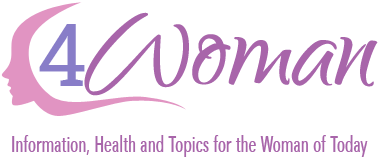Oral Retinoids: Oral Retinoids and Ichthyosis
Retinoids work to reduce the amount of oil secreted through the glands. Retinoids work by taking a derivative of Vitamin A once a day for a period of four to six months. Isotretinoin which is marketed as Accutane has been shown to be very effective when used to treat severe acne and over eighty percent of patients see an improvement of conditions. Isotretinoin also has a long effect over anti-bacterial treatments, most of the time it will even treat acne for good.
Treatment with oral retinoids requires supervision by certified dermatologists because of the side effects that can sometimes be severe with these drugs. About twenty-five percent of people will experience relapses after treatment. In these cases a second treatment is required for another four to six months.
Side Effects
The most common side effects of oral retinoids are dry skin and occasionally nosebleeds as a result of dry nasal mucosa. Within the first month or so, oral retinoids may cause a temporary flare up of acne conditions. Some tests have reported that the drug has damaged the liver. Therefore, many doctors will recommend blood samples to be taken and examined before and during oral retinoid treatment.
During treatment blood triglycerides also need to be monitored. Other reports suggest that isotretinoin may cause depression but no medical literature has agreed as to the risk. The drug can also cause birth defects if women take the medicine while pregnant or on the drug when they become pregnant. Therefore, while on the drug women are required to use two separate forms of birth control. Because of the side effects oral retinoids are only given after milder treatments are not sufficient in treating acne conditions.
iPledge Program
Beginning in March 2006 restrictive rules were put into use in the United States to prevent misuse of oral retinoids. The iPledge Program is a mandatory distribution program in the United States specifically for Accutane and other products that contain isotretinoin. The program is intended to prevent the use of the drug while pregnant because of the risk of birth defects associated with the drug.
As of March 2006 patients, doctors and pharmacists were required by the US Food and Drug Administration to register and use a web site to receive medication containing isotretinoin.
Isotretinoin is the choice drug for the treatment of severe cystic acne vulgaris. This form of acne typically causes scarring and depression as a result of the disfigurement. Many doctors refer to isotretinoin as the greatest medical advancement of the 1980s. Most of the patients using isotretinoin are permanently cleared of acne symptoms after a four to five month treatment period.
The program works by the doctor adding the patient information onto the iPledge website. A dispensing pharmacist then interviews the patient about their sexual practices and checks the website before filling the prescription. The goal of this program is to prevent women with the potential to become pregnant from receiving the drug or becoming pregnant while taking the drug.
iPledge Criticism
Many complain that the iPledge program is intrusive and Byzantine which requires a patient to choose between privacy or treatment. There is also the complaint of time and expense required of compliance with the program which may cause a barrier to a patients treatment if a doctor doesn’t want to put forth the required effort. The iPledge website has no information on how a patient’s private information is secured. Many also state that the website is not an effective pregnancy prevention program.
If there is ever an error on the site then a patient is locked out for thirty day and they cannot receive the medication needed to treat their acne. Problems have been common on the site and often take days to correct. There is technical assistance but many have to wait two hours or more on hold.

